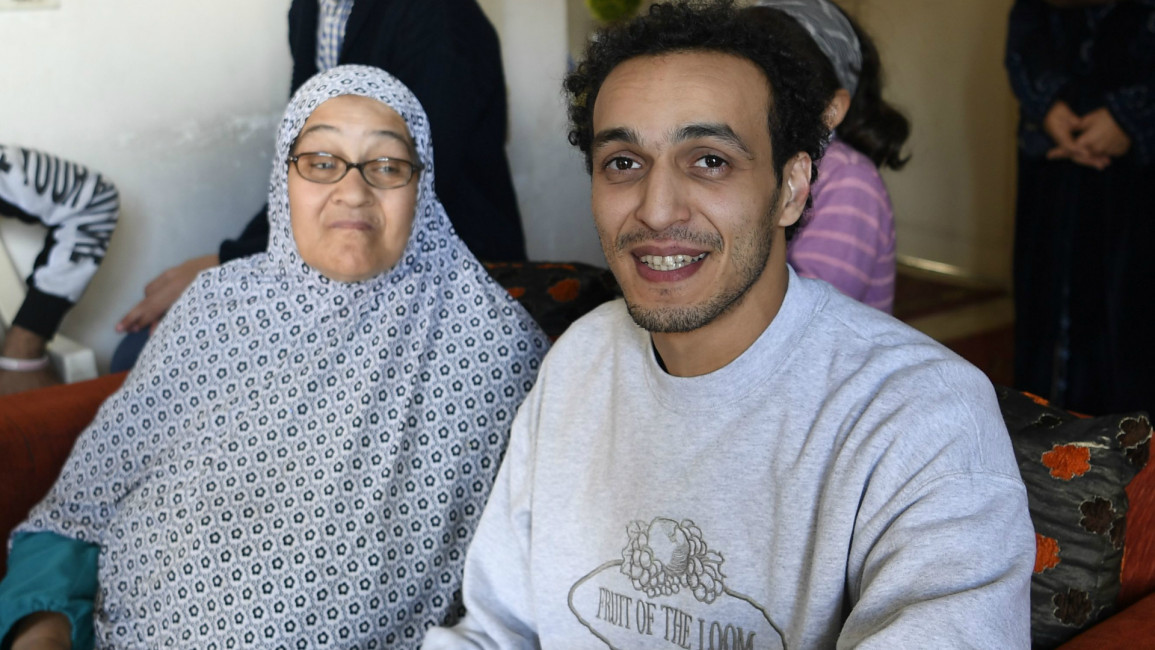Release of Egyptian photojournalist Shawkan 'long overdue': Amnesty
Following his release, the photographer - widely known as Shawkan – will be required to spend 12 hours a day in a police station for the next five years, the rights group said, urging for the lifting of these restrictions.
His "long overdue" release has brought an end to the "painful ordeal" he and his family faced, Amnesty International’s north Africa campaigns director Najia Bounaim said in a statement on Monday.
"As a prisoner of conscience, he should never have been forced to spend a single minute behind bars – let alone five and a half years," Bounaim said.
Shawkan was accused of "murder and membership of a terrorist organisation" - charges that can carry the death penalty.
In September, he was sentenced to a five-year jail term, which covered the time he had already served.
Twitter Post
|
"After his release he faces ludicrous probation measures which require him to spend 12 hours of each day at a police station from 6pm to 6am for the next five years," Bounaim said.
"These outrageous measures will severely restrict his liberty and should be lifted immediately."
Shawkan, who last year received UNESCO's World Freedom Prize, was jailed and put on trial along with 739 defendants, most of them charged with killing police and vandalising property.
It was one of the largest mass trials since the 2011 uprising that toppled veteran president Hosni Mubarak.
"Mahmoud Abou Zeid was arrested and imprisoned solely for doing his job as a journalist," Bounaim said.
"His conviction, more than five years later, on trumped-up charges during a grossly unfair mass trial alongside more than 700 other defendants was a mockery of justice.
"Mahmoud Abou Zeid has been the victim of an appalling injustice and the authorities must offer full reparation for this outrageous violation of his human rights."
A crackdown by President Abdel Fattah al-Sisi's regime has muzzled free expression after the overthrow of Mohamed Morsi of the Muslim Brotherhood in mid-2013.
Since the deadly Rabaa massacre, Egyptian authorities have led a brutal crackdown on political dissidents, rounding up thousands and sentencing hundreds to life in prison, or death, in grossly unfair mass trials.
Human rights groups estimate that as many as 60,000 political prisoners languish in Egyptian jails, significantly more than under Hosni Mubarak's dictatorship.
Follow us on Twitter: @The_NewArab



